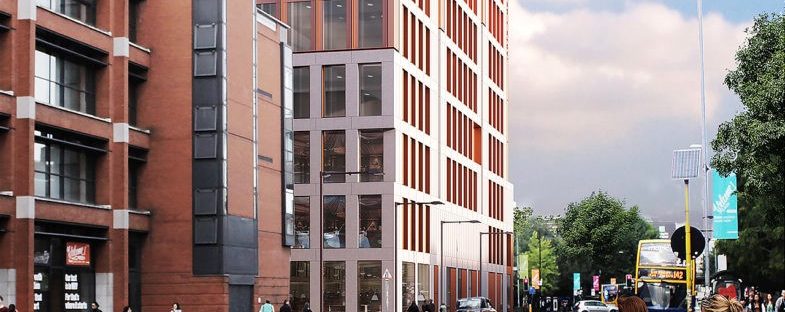Manchester poetry library aims to be focal point for lovers of verse throughout the region
- First poetry library to open within a UK university
- Library will showcase poetry through performance, spoken word and music
- Library will open early 2021
’We’re open to everyone, and that’s the really important thing I want to get across.’’
That’s the message from Becky Swain, director of the new Manchester Poetry Library at Man Met.
Three years in the making, the Manchester Poetry Library will be opening early 2021, after social distancing restrictions meant the initial opening planned for the summer of this year had to be postponed.
The idea for the library came to life through the team of poets at Manchester Writing School at MMU, including Carol Ann Duffy, the former poet laureate.
She not only wanted the library to be something for research and students, but also for members of the public.
Becky said: “We want to represent the 200-plus languages of Manchester, and you can imagine what kind of challenge that is.’’
Situated on Oxford Road, the library will be on the doorstep for thousands of students to access, as well as members of the public who wants to explore all the library has to offer.
Becky stressed that they want to be a place that appeals to everyone, for people to feel inspired, and to find poetry they will personally connect to.

With the poetry library becoming the first to open in a UK university, alongside being the fourth in the country, it’s something really unique for the city that puts Oxford Road on the map for creatives.
“We want to be open to somebody coming into the poetry library and saying, not that they’re looking for something from a particular poet,’’ Becky explains, ‘’but that they’re looking for a poem for their daughter’s birthday, or their mother’s funeral.”
There are plans in place for reading groups, socially distanced if necessary, as well as collaborations with arts and humanities students, and workshops with the amazing group of poets in the writing school, such as Malaika Booker, Helen Mort and many others.
With such a creative atmosphere, the library aims to challenge the perception some people have that poetry is archaic or something they’re not interested in.
GCSEs syllabuses can often leave a lasting negative impression of poetry on students, and Becky explains how difficult it can be ‘’when you find young people who have either a bad experience, or just genuinely think poetry is not for them.’.
However, with the plans to showcase poetry through performance, spoken word, music, and placing a huge focus on recording, the library challenges these outdated stereotypes.
‘’If you look at what the word poem actually means, it means making, and if you think about what the word making means, it means that it’s a craft that you can learn, it’s not something that’s unattainable,’’ she says.
‘’So one of the things we really want to push at the library is that, whether you’ve written poetry before, many times or never, there is a way to engage.
“We’re not suggesting that everyone will want to write, but actually starting by watching recordings or reading, may capture your imagination, and we’re thinking about lots of different ways we can do that.’’
Alongside the many interactive projects planned, the library is also going to be working with different charities, such as mental health charity 42nd Street, who they are currently in partnership with.

Poet,and member of the Manchester Writing School, Helen Mort, goes will talk about her process as a poet and how it helps her communicate her feelings. The sessions are all about getting people to enjoy words and asking where they can find them in film, posters, and music, helping them use poetry to find enjoyment in what surrounds them.
Andrew McMillan, winner of the 2015 Guardian First Book Award and inaugural 2019 Polari Prize, who is senior lecturer in creative writing at MMU, stated in an interview with About Manchester, that the library ‘’will be working with students and community partners in the care and health sectors to encourage more poetic responses,’’ which is part of ‘’a wider arts and wellbeing project to develop poetry writing and reading activities for the public.’’
The library will be showcasing a contemporary collection from the date 1889 onwards.
Becky explains that they chose that year to go from, as “it’s the year of the worlds’ first audio recording of a poem, on Edison’s phonograph. He reads a poem of his own and forgets the words hallway through,’ which with the libraries focus on audio recording, seems only fitting.
The date also pays tribute to the North West, and how its been a hive of spoken word since the 70s and 80s, celebrating the power and the way performance poetry connects with people.


